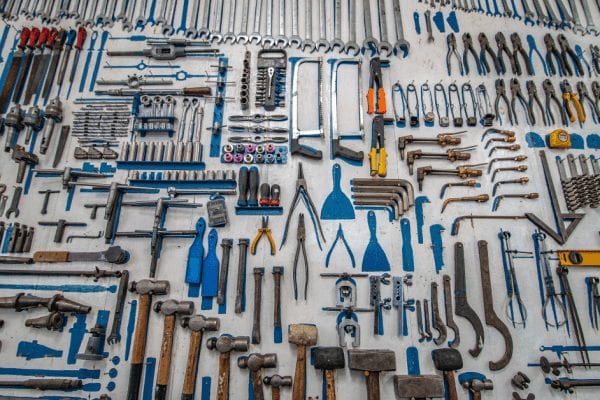Nearly 3% of Australians will suffer from Obsessive-Compulsive Disorder (OCD) in their lifetimes, while about 2% of the population will suffer its effects within a 12-month period.
While the numbers in Australia may not seem large, OCD is such a debilitating psychiatric condition that its effects on its sufferers can be devastating.
The Banyans Health and Wellness Lead Psychiatrist, Dr Anja Kriegeskotten, says early diagnosis and a greater preparedness to seek treatment will help to reduce the long-term effects of OCD on its sufferers.

What is Obsessive-Compulsive Disorder?
OCD is a complex anxiety disorder that drive patients to repeat the same act, such as washing their hands over and over again. This can often occur for many hours, severely limiting its sufferers’ ability to work, maintain relationships, have a social life, and achieve personal growth.
Psychiatrists define obsessions as the domination of a person’s thoughts, memories, images, or urges.
For people with OCD, obsessive thoughts can ignite significant anxiety and stress. As a result, people with OCD often compensate with compulsive behaviours or persistent and repetitive acts or even “rituals” that can provide a sense of satisfaction or relief.
People with OCD may experience obsessive thoughts, compulsive behaviours, or both. The condition can affect both adults and children, although OCD is most usually diagnosed in adolescence.
Many OCD sufferers feel intense shame about their compulsions, attempting to hide them where possible. The resulting secrecy has the unfortunate consequence of delaying diagnosis and treatment, and in some cases, leads to social disability with children failing to attend school or adults becoming housebound.
Symptoms of OCD

Some OCD symptoms include:
- Overwhelming amounts of time spent on ritualistic behaviours
- Health issues, such as contact dermatitis from frequent hand-washing
- Inability to attend work, school, or social activities
- Relationship difficulties
- Overall poor quality of life
- Suicidal thoughts and behaviours
“We would encourage who suspects who suspects they may be suffering from irrational, unjustified fear or anxiety and/or compulsive behaviour to seek advice from a medical professional as soon as they can,” Dr Kriegeskotten says.
“OCD sufferers need to understand they are not alone in their condition. They also don’t need to be suffering from a crisis in order to seek help. In fact, it is usually better and the outcome is more successful if help is sought earlier rather than later.”
Signs of Obsessive Compulsive Disorder
So what can the symptoms of obsessive thoughts and compulsive behaviours look like?
Obsessions:
- Fear of dirt, germs, microbes, and contamination
- Uncontrollable urge to hurt other people
- Overwhelming feeling of responsibility for the safety of others
- Intense thoughts about sexuality or religion
- Constant feeling of dread
- Unrelenting desire for perfection

Compulsions:
- Washing, rinsing, and cleaning
- Obsessive hand washing
- Counting, or arranging objects in a specific order
- Hoarding
- Obsessive praying
- Checking things repeatedly
What does OCD treatment look like?
OCD is treatable and seeking professional support is the first step towards recovery.
Mental health professionals will frequently use cognitive-behavioural therapy (CBT) with those suffering from OCD, and medication can also be consider for those with more severe cases. A mix of both can also be used.
CBT aims to help people with OCD to confront and understand the irrational nature of the thoughts they are having. It also challenges them to rethink their beliefs about danger and control.

Patients are encouraged to open themselves to anxiety-prompting stimuli and to refrain from any corresponding compulsive behaviours that might alleviate the anxiety they are experiencing.
With more severe cases, psychiatrists may consider prescribing medication to alter the quantity of neurotransmitters in the brain. The theory behind is that OCD is sometimes caused by a neurochemical imbalance.
How can The Banyans help?
The Banyans Health and Wellness offers a 28-day Comprehensive Program to help those suffering from OCD or anxiety. This program provides access to a registered Psychiatrist as well as other medical specialists for thorough support and supervision of medication changes.
It also includes daily appointments with a Clinical Psychologist and qualified ancillary therapists such as music, art or equine therapy. Mental health support staff are on hand 24 hours a day, seven days a week.
The Banyans’ multidisciplinary approach arms individuals with the skills and strategies needed for long-term management and recovery.
“Getting help to address the issues that are preventing you from living life to the full is never a sign of weakness,” Dr Kriegeskotten says.
For a confidential discussion about how you or someone you care about can access and benefit from treatment at The Banyans Health and Wellness, call us on 1300 BANYAN (1300 226 926) or complete the online form below.







